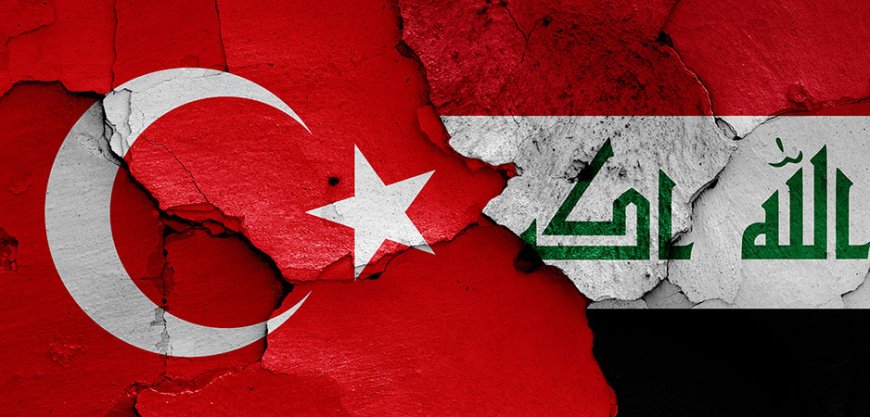Development Road: in Iraq's Name to Turkey's Fame

Author: Navid Daneshvar
The President of Turkey visited Iraq in May of this year at the head of a high-ranking delegation after 13 years. During this trip, the two sides signed 26 agreements and memorandums of understanding in various fields. The most important agreements were in the areas of security and economy, including an agreement to build a new transit road connecting Europe to the Middle East. This agreement, titled the "Development Road," was concluded in Baghdad with the presence of Turkish President Recep Tayyip Erdogan, Iraqi Prime Minister Mohammad Shia al-Sudani, and the ministers of four countries: Turkey, Iraq, UAE, and Qatar.
The "Development Road Project" includes a land and rail route from Iraq to Turkey. This route starts from Faw Port in Basra, passing through the cities of Diwaniyah, Najaf, Karbala, Baghdad, and Mosul in Iraq, and continues to the Turkish port of Mersin in the Mediterranean Sea. It includes railways, highways, and pipelines, with over 1,200 kilometers of infrastructure inside Iraq.[1] The budget for implementing this project is estimated at $17 billion and will be carried out in three stages.[2] The first phase is set to be completed by 2028, the second phase by 2033, and the final phase by 2050.
It is worth noting that, as per the latest agreements, the route of the development road project in the Iraqi sector has been altered in favor of the Kurdistan Region. After passing through Ovakoy on the Turkish border, the route will enter the regions of the Kurdistan Region to the east of the Tigris River, eventually reaching Mosul after traversing these areas.
This project, defined as the New Silk Road, aims to strengthen Turkey's geopolitical position, cover a wide area, and bring mutual benefits to all involved parties. The decision to change the route in favor of the Kurdistan region of Iraq holds significant meaning. President Erdogan's visit to the Kurdistan Region of Iraq, where he met with local authorities before returning to Turkey, underscores the importance of connecting the transit section of the project to the Fish-Khabur region in Dohuk province. This connection serves as a crucial incentive for regional authorities to collaborate with Turkey in combating the PKK and other Turkish opposition forces in the area. [3]
Earlier, Iraqi Deputy Foreign Minister Hisham Al-Alawi emphasized that resolving the PKK issue is essential not only for Iraq's national security but also for regional projects like the development road project.[4] He stressed the importance of Iraq and Turkey working together to promote regional stability and economic integration.
The keywords "regional stability and economic integration" carry significant weight. The Al-Ahram Research Center published an article on President Erdogan's recent visit to Iraq, highlighting the goal of creating a balanced equation between security and economy. This equation, known as "security vs. economy," is intended to guide their relationship dynamics in the future. The primary objective behind the development road project is to leverage economic gains alongside security benefits for Turkey.
It is crucial to recognize that such a massive project can be a double-edged sword. Success in attracting capital and operationalizing the project could lead to growth and development in Iraq. However, challenges such as internal disputes, securing foreign loans for project financing, failure to meet loan obligations, regional conflicts, or other obstacles could impede progress. Despite these potential challenges, Iraqi leaders have no alternative but to pursue this path to improve their current situation.
In addition to the main challenge of financing the exorbitant cost of implementing this project, another important challenge is the disagreement between the different political groups ruling in Iraq and the lack of alignment between the positions of the Kurdistan Region and the Iraqi authorities. On the eve of such a huge project, it should be ensured that the Iraqi government has the ability to control them and ensure the safety of investors. Another issue is related to Iraq's insufficient infrastructure; it should be noted that such a huge project needs a minimum of development to reach the exploitation stage. The road of development passes through 10 provinces of Iraq, none of which has good infrastructure.
On the other hand, considering the new developments in the region and the history of relations between Ankara and Baghdad, which have been tense for more than a decade, this trip and its achievements can be considered very important. A trip whose results are important for Iran as a country that has a lot of political influence in Iraq. It should be noted that the view of the Islamic Republic of Iran has always been to preserve the territorial integrity of its neighbors while respecting the stability of the region. In this context, any action that leads to the development and support the progress of Iraq has been stated many times from official forums. The development of Iraq will lead to the development of the region, and this has been and will be the constant policy of the Islamic Republic of Iran.
[1] https://www.aa.com.tr/tr/dunya/irakli-uzmanlara-gore-kalkinma-yolu-projesi-turkiye-ile-irakin-ekonomik-ve-jeopolitik-statusunu-guclendirecek/3198005
[2] https://www.ekonomist.com.tr/haberler/gundemdeki-kalkinma-yolu-projesi-nedir--49366
[3] https://www.fokusplus.com/gundem/irak-disisleri-bakan-yardimcisi-pkk-sorunu-ve-kalkinma-yolu-projesi-icin-birligi-sart













































